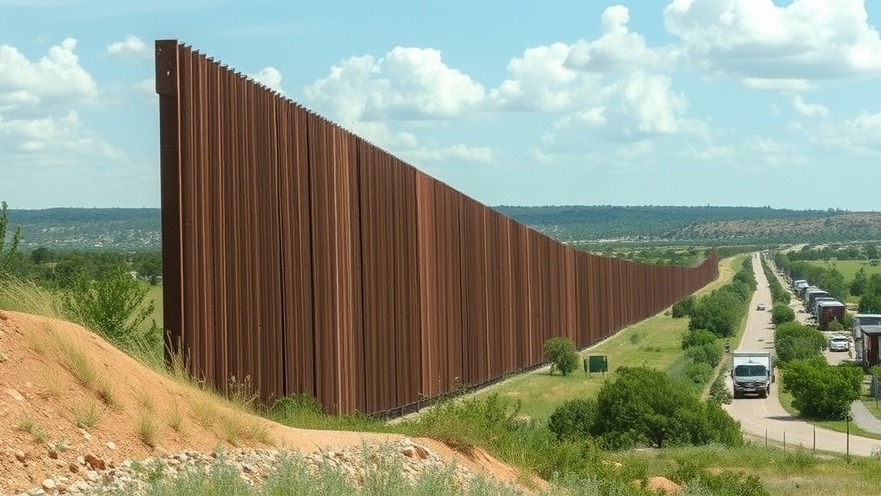
Strengthening the Border: A New Era in Military Presence
The recent announcement by the Trump administration regarding the expansion of military operations along the U.S.-Mexico border marks a significant evolution in how the government addresses immigration and border security. Spanning an additional 250 miles through Texas, the newly designated national defense area encompasses two counties, impacting cities like Brownsville and McAllen. This expansion raises critical questions about the balance of power, federal authority, and the implications for local communities.
Why Does It Matter? Understanding the Broader Context
This military escalation is part of a broader strategy initiated earlier this year, adopted in response to a perceived crisis at the southern border. By utilizing military resources for border security—specifically the authority to detain individuals for trespassing in these designated areas—the government aims to amplify its enforcement capabilities. This shift occurs alongside a notable decrease in arrests for illegal entry, which the government attributes to these enhanced measures.
A Closer Look: The Implications for Local Communities
Residents and local organizations have expressed concern regarding the militarization of the border. With additional military presence, questions arise about public access to recreational spaces that are now restricted. Hunters, hikers, and activists have voiced fears that their activities will be hindered as the military enforces stringent entry bans in designated defense areas.
Legal Challenges and Public Sentiment
The increase in military operations also brings forth complex legal implications. The Posse Comitatus Act restricts military involvement in civilian law enforcement, raising concerns among legal experts. As more cases emerge challenging these detentions—particularly concerning mixed outcomes in court—public sentiment remains divided. Some supporters argue that heightened security is necessary, while critics view it as an overreach of authority.
What’s Next for Immigration Policy and Border Security?
As the federal government moves forward with this military strategy, the future landscape of immigration policy remains unclear. The deployment of troops and the establishment of new defense areas serve as a critical test of federal powers. What’s more, the potential consequence of escalating tensions between law enforcement and communities on the ground cannot be overlooked, raising questions about how this will affect immigration reform discussions in the years to come.
The Vision for the Future: Opportunities Amid Challenges
While the expanded military presence at the border signals an ongoing commitment to secure national integrity, it also uncovers opportunities for community engagement and dialogue. Discussions around immigration policy can and should include perspectives from local residents, law enforcement, and activists to collectively find a viable path forward that addresses security concerns while acknowledging humanitarian rights.
Ultimately, the balance struck between national security and individual rights will play a significant role in shaping the future of not only Texas but the entire nation. As discussions unfold, the role each Texan plays will be paramount in the ongoing narrative surrounding immigration and border security.
Take Action: Become Informed and Engaged
As these significant changes unfold, it is crucial for Texans and all citizens to stay informed about local and national news that impacts our communities. Join discussions, share your thoughts, and hold elected officials accountable to ensure your voice is part of the conversation. With continued scrutiny and engagement, communities can influence policy and advocate for balanced approaches to border security.
 Add Element
Add Element  Add Row
Add Row 



Write A Comment